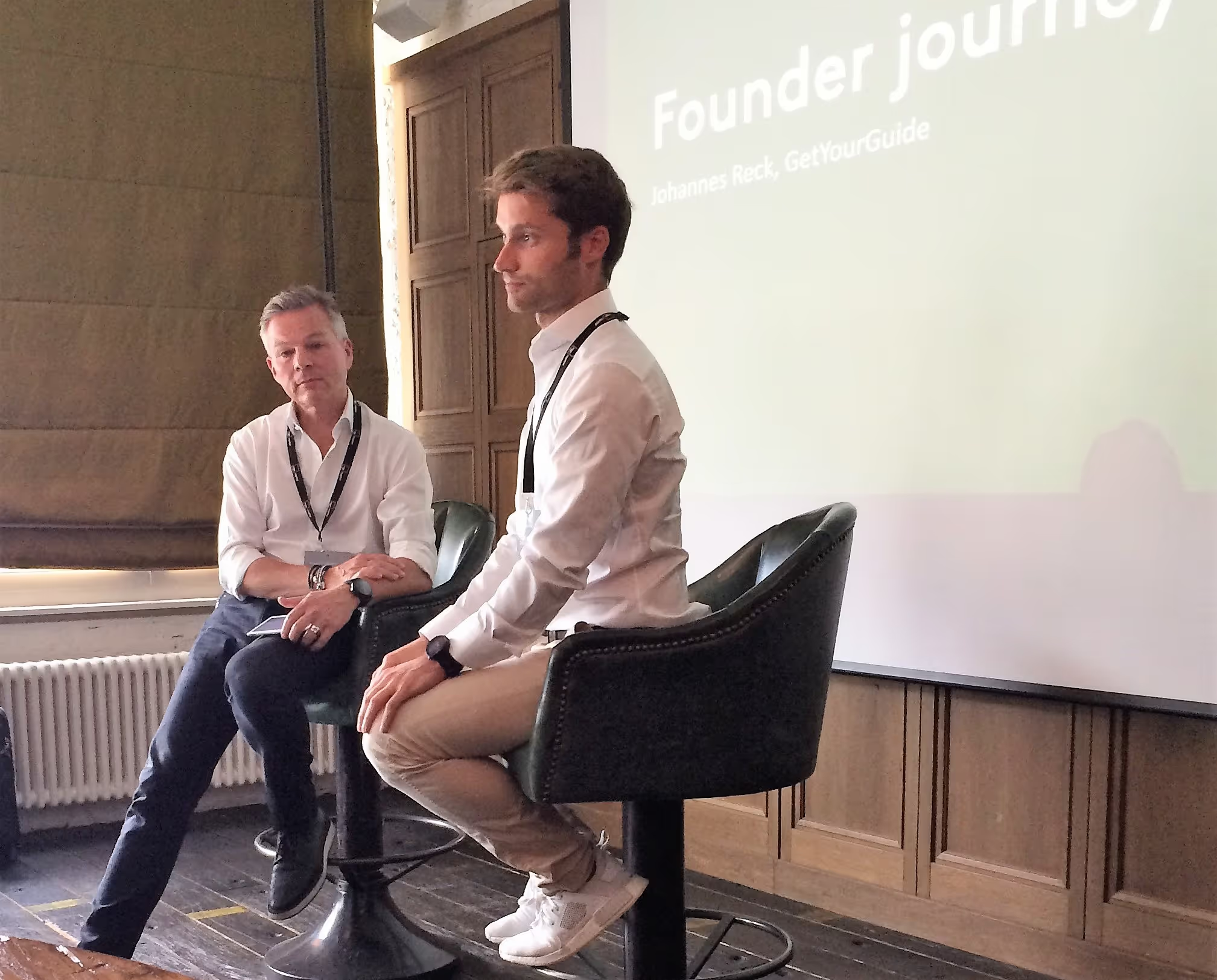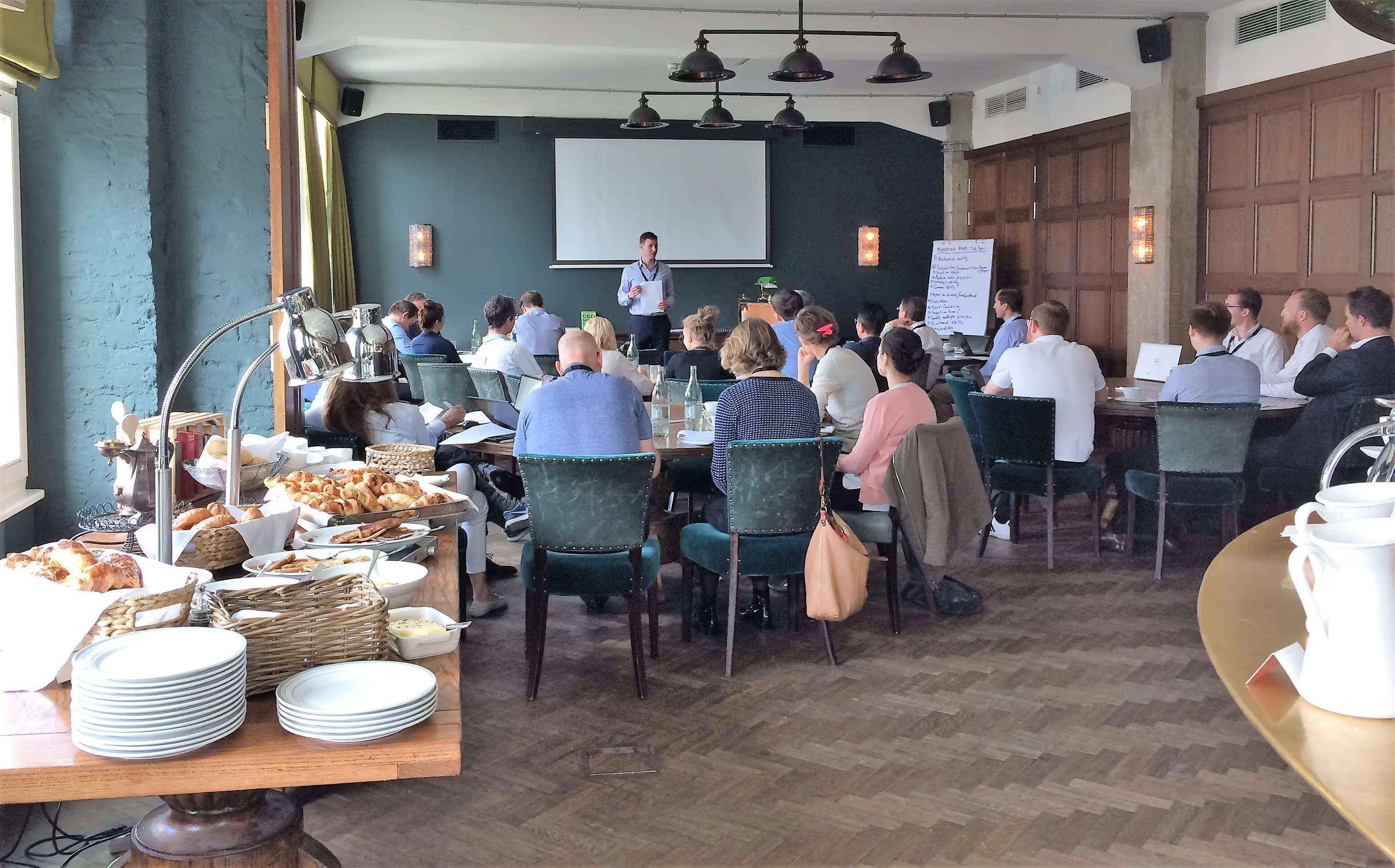Listen now
We deliberately kept the event small-scale to foster trust and open discussions. This is the fifth time we have gathered a carefully selected group and provided an opportunity for founding teams to meet, share, discuss and learn among peers.

- Know who you are dealing with and understand the map of power in the buying organization. Some companies have a decentralized M&A process, while others have a highly centralized one. You need to get to know them closely and know where they stand before you start to share any sensitive information.
- Be organized with the data room material; don't show an aggressive forecast that you know you won't meet. These processes can take from three to nine months, so be realistic about what you put in front of the buyer. The more risk, the tighter the offer.
- If you deal with sophisticated buyers, you can provide just a little bit of information and ask for a soft valuation discussion. Try to get an understanding of whether they are in the right ballpark. Most companies have soft discussions all the time; entrepreneurs should not feel that they must push for a term sheet.
- The more prepared you are, the better your prospects. Wait as long as you can before you enter into an exclusive agreement with a buyer.
- The first time you are talking to an M&A advisor should not be when you are about to launch a process. Develop a relationship beforehand, so that you know the experts you will be taking on board. When the time does come, you might not want to work with someone you just met a month ago.
On day two we took the team through a workshop on hiring. With the help of an external specialist, we developed a specific checklist on how to reduce hiring mistakes and improve the hit rate with hiring. Everyone makes hiring mistakes. It’s estimated that, on average, the financial cost of a hiring mistake is around 15X, and 80% of employee turnover is due to hiring the wrong people. It was also surprising to find out that the average hit rate with hiring is only around 50% - it seems that you might as well flip a coin and skip the whole interview process.

Hiring mistakes are made for a variety of reasons (time pressure, bias, competition, not having a clear goal in mind for the hire, etc.) but the most important reason is that we rarely get trained in how to hire successfully and treat it as a side function to the core business. The workshop provided a worksheet for hiring successfully, which improves the hit rate when hiring.
The event ended with David Tang, partner at NGP Capital in China, giving us a crash course on the speed and state of tech innovation in China. At its current growth rate, China is set to become the largest economy in the world by 2030. The country produces about 7-8 million university grads per year, and a lot of Chinese STEM graduates who studied abroad are now returning to China. In addition, there are large pools of money floating into China and funding capacity is steadily increasing year over year. In 2017, $26B in venture capital was deployed in China, compared to $35B in the US, and the Chinese government is doing a great deal to keep up economic growth by fostering technology innovation. Why is this relevant? Because China is still a closed market, and entering it requires careful planning and navigation. A few concrete tips and tricks were shared with the team, but the most important tip is that companies still need a local partner to guide them through the process of entering the lucrative Chinese market.
The next hosted gathering of our portfolio companies, friends and advisors will be held on November 13th, 2018 in the Bay Area in California.

.svg)






.svg)




.avif)

